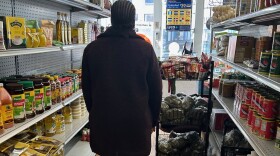This legislative session is almost half over, and numerous bills are waiting to be voted on. The Black and Puerto Rican Caucus recently released what it’s calling “four key pillars” for the year: public health, workforce growth, education and racial equity. The caucus is sponsoring numerous bills on these pillars.
State Rep. Geraldo Reyes, D-Waterbury, said Connecticut laws lag in equity and inclusion. However, he said there had been an advance in mental health for school-age children.
“What we learned before the pandemic, during the pandemic and after the pandemic was that the have-nots were having trouble long before the pandemic got here,” Reyes said. “It’s worse than anybody thought. So at the end of the day, we know that the bar is now set, and we need to go nowhere but up, and that’s what our new policies are addressing.”
A report from the Commission of Human Rights and Opportunities says that schools in low-income communities are “deprived of resources to devote to their students who fall behind their peers in wealthier towns. This perpetuates a cycle that denies whole communities equal opportunity.”
Connecticut has a lengthy history of segregation stemming from centuries of governmental and private policies targeting Black, Indigenous and Latin American communities, said Juan Coronado, a history professor at Central Connecticut State University. This issue intensified during the onset of the COVID-19 pandemic, particularly impacting essential workers.
“I think many Americans were aware of the plight of first responders and front-line workers, and people worked in the grocery stores, and a lot of them were Latinos, Chicanos took a big hit early on in the pandemic, farm workers that never stopped working during the pandemic, the folks working the meatpacking plants,” Coronado said.
State Sen. Tony Hwang, R-Fairfield, believes education and awareness programs can break down bias and stereotypes.
“We, as a community and individuals, need to engage and learn from each other. Not by defining stereotypes and categorization, but by interacting and listening to each person and celebrating the unique individuals that we are,” Hwang said. “We can only make these urgent and fundamental changes by healing, learning and trusting together. Nobody is perfect, but we can all work to be better every day.”





